Turn Off Automatic Updates in Windows 10
Windows 10 offers Feature Updates (New Version of Windows 10) twice in a year (spring and fall) and monthly Quality Updates (maintenance and security).
Quality Updates also known as Cumulative Updates are smaller in size and install within minutes on your computer, while Feature Updates take up a long time.
On both Windows 10 Home and Pro Versions, Windows Quality Updates can be delayed or deferred up to a period of 35 days.
If you are using an older option of Windows 10, you won’t find the option to defer Windows updates. In which case you can use methods 2 & 3 as provided below.
1. Disable Automatic Updates using Settings
Perhaps, due to user feedback and strong reaction of some users, Windows 10 provides the option to stop updates up to 35 days.
1. Go to Settings > click on Update & Security.
2. Click on Windows Update in the left-pane. In the right-pane, click on Advanced options.
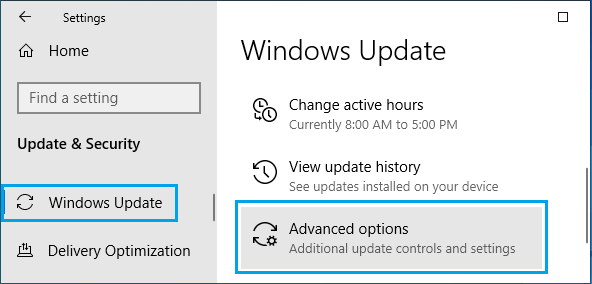
3. On the next screen, click on Pause until drop-down and select the Date up to which you want to stop Windows Auto Updates.
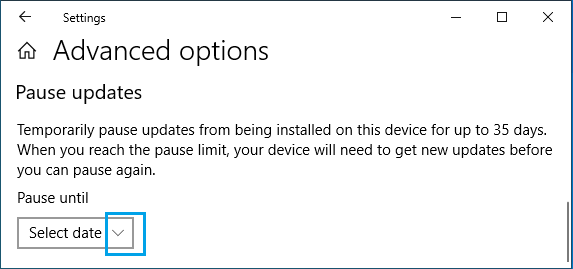
This will disable Windows Auto Updates on your computer, until the day that you selected in the drop-down menu.
When the selected date is reached, you need to install the latest available updates, in order to make the pause option available once again.
2. Turn Off Automatic Updates Using Administrative Tools
If you are using an older version of Windows 10, you can disable Auto Updates by signing into your Admin Account and following the steps below.
1. Right-click on the Start button and click on Run.
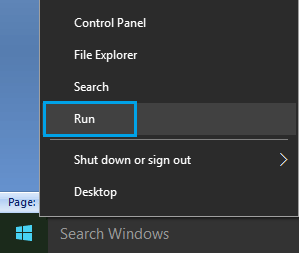
2. In Run Command window, type services.msc and click on OK.
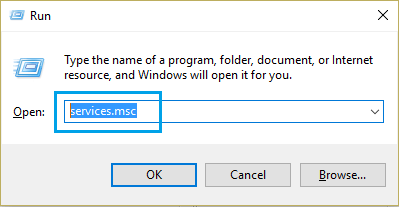
3. On the Services screen, right-click on Windows update and click on Properties.
es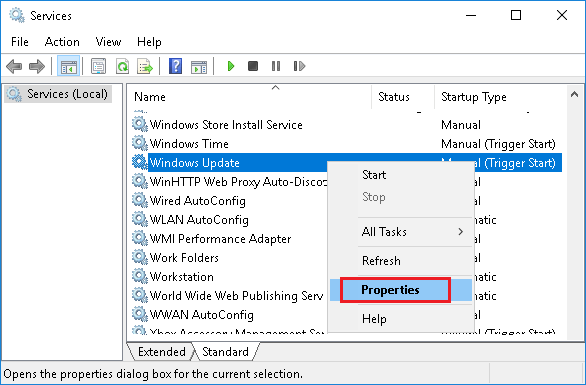
4. On Windows Update Properties screen, click on Start type down-arrow and select Disabled option.
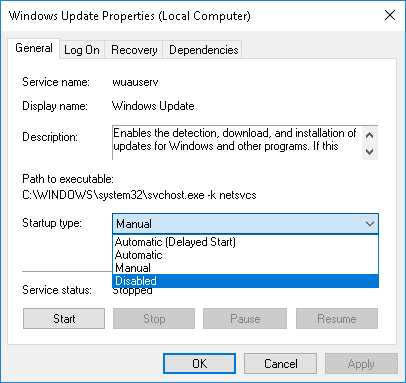
5. Click on Apply and OK to save the changes to your computer.
The disadvantage of this method is it can prevent your computer from being up to date with Windows Updates.
Hence, it is important that you remember to periodically check for Updates and install them on your computer.
You can do this by setting Windows Update Service to Manual option by using above steps and then going to Settings > Update & Security > Check For Updates.
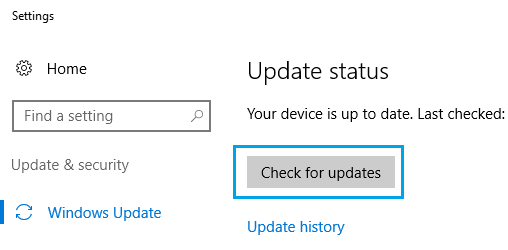
Note: You may see a message saying that “updates were stopped on your computer” or similar. In such cases, click on Retry to download and install available updates on your computer.
If your computer has missed multiple updates, you may have to click on Check for Updates multiple times, until your computer says that it is up to date with Updates.
After this, you can Disable Windows Update service, if you still want to Turn OFF Automatic Windows Updates on your computer.
3. Turn Off Automatic Updates Using Metered Connection
Some users have discovered that Windows 10 Updates are not downloaded to the computer, when the Network connection is set as Metered Connection type.
1. Go to Settings > Network & Internet.
2. On the next screen, click on WiFi in the left pane. In the right-pane, click on your WiFi Network Name.
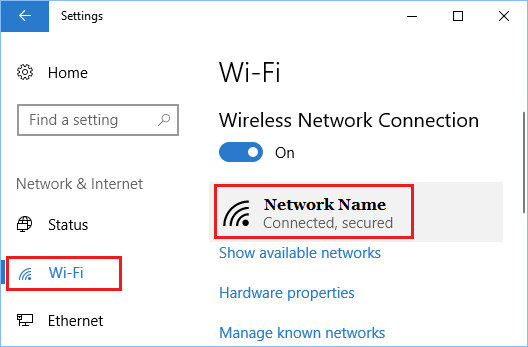
3. On the next screen, scroll down and enable Set as metered connection option.
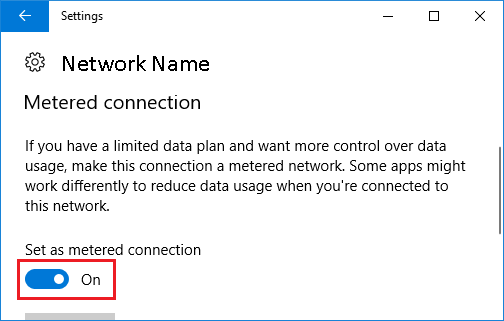
After this, Windows should no longer download and install Updates Automatically on your computer.
Why Users Want to Disable Windows Auto Updates
A common reason for disabling Windows Auto Updates is to prevent the device from being interrupted during working hours.
The computer slows down while downloading and installing updates and most updates require the computer to be Restarted.
All this leads to a breakdown of the work flow, which many users want to prevent by disabling Auto Updates on their computers.
Another popular reason for disabling Windows Auto Updates is to prevent chances of an Update causing problems or becoming incompatible with Apps and programs installed on their computers.
Irrespective of the reasons, you can Stop Auto Updates on your computer using any of the methods as provided above in this article.
After disabling Auto Updates, it is recommended that you periodically check for Updates and install them manually on your computer.
This will ensure that your computer remains protected from malware and security attacks.
